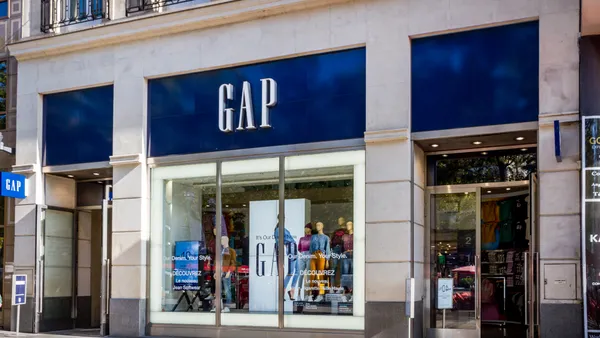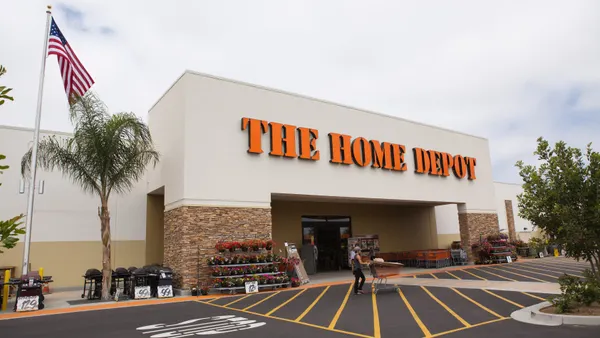Dive Brief:
- Kmart is about to close its last store in Michigan, the state where the discount retailer was founded more than a century ago, according to local media reports and a closing sale list from SB360 Capital Partners, which provides liquidation services.
- Kmart's website lists 22 remaining stores in all, and just 16 in the continental U.S. That number includes the store in Marshall, Michigan, and two others on SB360's list of slated closures.
- A spokesperson for Transformco, which owns Sears and Kmart, did not immediately respond to a request for comment.
Dive Insight:
A decade ago, Kmart's footprint totaled more than 1,300 stores. After the cuts, decline and bankruptcy of the ensuing years, it might be more surprising at this point that there are any Kmart stores left standing.
Kmart began when Sebastian Spering Kresge opened a five-and-dime store in downtown Detroit in 1899. By 1912, Kresge had 85 stores, with annual sales of more than $10 million (more than $280 million in today's dollars).
Kmart went limping into the 21st century after Walmart thoroughly outflanked the retailer in the discount sector, and after Kmart's attempts to buy its way into big box category retail fizzled and left it indebted.
"They were ignoring their core stores," Nick Egelanian, president of retail development firm SiteWorks, said in a previous interview about Kmart in the later years of the 20th century. "And who passed them during that time? Walmart. And why did Walmart pass them? Because Walmart had a better distribution system."
Eddie Lampert — formerly CEO of Sears Holdings and now in control of Transformco through his hedge fund, ESL Investments — took over Kmart after the retailer filed for bankruptcy in the early 2000s. Shortly after, Kmart merged with Sears.
Mashing up Sears and Kmart put two weak, declining, dissimilar retailers together under one corporate roof. In charge was Lampert, who oversaw years of further dramatic decline, as well as vigorous, often convoluted and — various stakeholders would allege later — self-serving financial engineering.
Sears department stores have undergone a shrinking similar to Kmart, with just a handful left. That once-storied name also closed the last remaining store in its home state — in this case, Illinois — earlier this fall.
In the industry, there's some mystery around how Transformco's larger-format stores are still standing at all, as the attrition in footprint seems never ending and customers seem largely to have moved on from the core Sears and Kmart brands.
"There's no love there for consumers, no relevance for consumers," Neil Saunders, managing director with GlobalData, told Retail Dive earlier this year. "The whole company is a husk of what it once was. There is no intention there of [operating] as a legitimate retailer. It's a financial play. There's probably some things to do with property, but as a viable retail business, there's no future there."
Transformco said in September that it had 300 stores left. The vast majority of those are its smaller-format stores, including Sears Hometown, which Transformco acquired in 2019 — saving it from a planned liquidation — and has since shrunk considerably.
The company has said it is building its go-forward strategy around its smaller stores — which it says it intends to grow in places where larger Sears and Kmart stores have closed — along with Sears' Shop Your Way rewards program, online marketplace, and omnichannel capabilities













